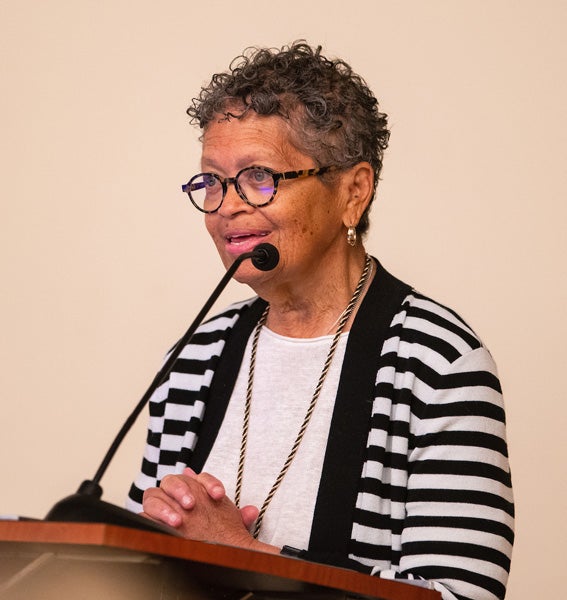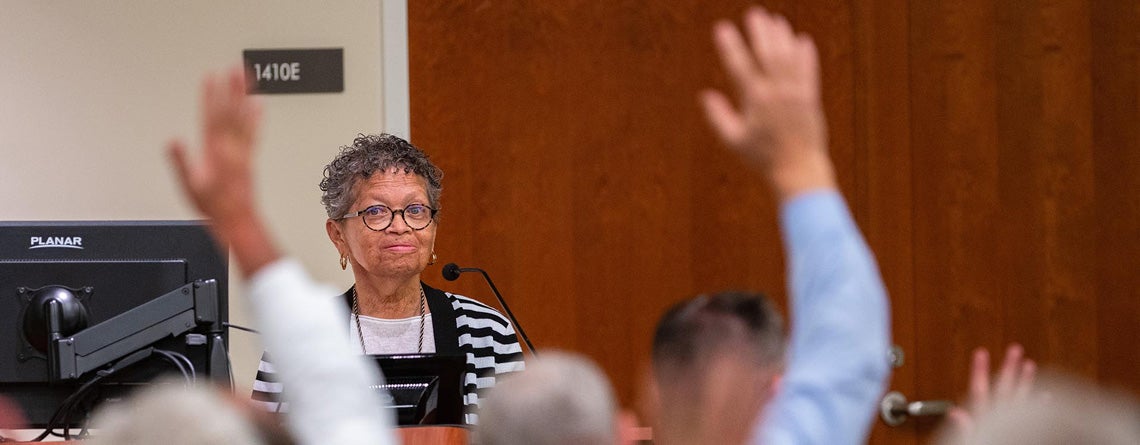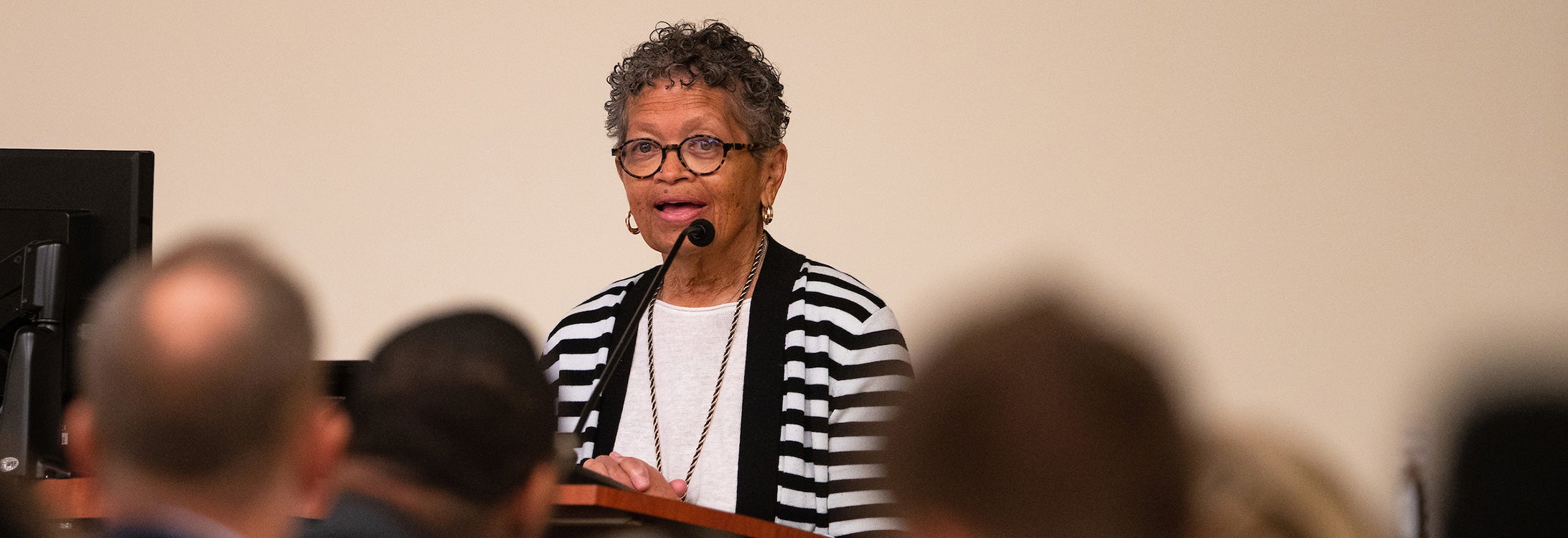MEDICAL STUDENT ORIENTATION
Students get lesson in compassion, love on first day of medical school
On their first day of orientation at the Brody School of Medicine at East Carolina University, this year’s 86 incoming medical students took part in traditional orientation-related tasks and tours.
They also received some poignant guidance from a veteran physician about what they are expected to do and who they are expected to be as physicians.
Dr. Brenda Armstrong, senior associate dean for student diversity, recruitment and retention at Duke University School of Medicine, delivered the 11th Annual Jose G. Albernaz Golden Apple Distinguished Lecture, which she began by informing the students that she grew up in Rocky Mount as a product of the segregated public school system.

Dr. Brenda Armstrong.
She explained how several of her teachers at the segregated Booker T. Washington High School, including her own mother, had doctorate degrees but were unable to secure employment elsewhere due to their race. Armstrong said it was in the gymnasium of that high school where she sat on someone’s shoulders to witness Dr. Martin Luther King Jr. deliver a version of his “I Have a Dream” speech about eight months before he famously delivered it during the 1963 March on Washington.
Armstrong spoke about how her father and his siblings all worked themselves up from humble beginnings to achieve successful careers in medicine, and how she routinely witnessed the sacrifices they all made for the sake of their patients.
“I saw life through their eyes,” said Armstrong, who is also a professor of pediatrics at Duke. “I saw how they suffered, for they thought they should give back to the community in ways that I could not have imagined as a young child in rural North Carolina.
“Through dad’s eyes, I was able to see what a doctor truly is. He loved his patients. He knew details about them that only a trusted member of a family could know,” she added. “I grew up watching him and [my uncles] care for people whether they could pay or not.”
The “simple, kind and values-based” qualities that she witnessed in those family members are traits that Armstrong said she has tried to emulate throughout her own career.
While all of the incoming Brody students were able to boast strong academics, Armstrong told them that being a doctor is less about how smart they are and more about whether they are ready to “take on the daunting task of the health of people.”
“You are being given the most precious task imaginable, maintaining the health of the people of a community,” Armstrong said. “For those of you who are new to medicine, it is not enough to just to be technically good. It’s not about MCAT scores and it’s not about GPA. If you work hard those things are achievable. But in medicine, as in nothing else, it’s about values and heart and life experience.
“If love is not in your heart, you can’t do medicine,” she added. “What you are being given is the absolute privilege to enter another’s life. It is not to be taken lightly. Let your values and humanity define you as who you are going to be seen as in the community.”
The Dr. Jose Albernaz Golden Apple Lecture Series is an endowed lecture series, sponsored by the ECU Medical & Health Sciences Foundation, that honors the pioneering neurosurgeon annually through engaging discussions around topics and issues that impact medical education.

